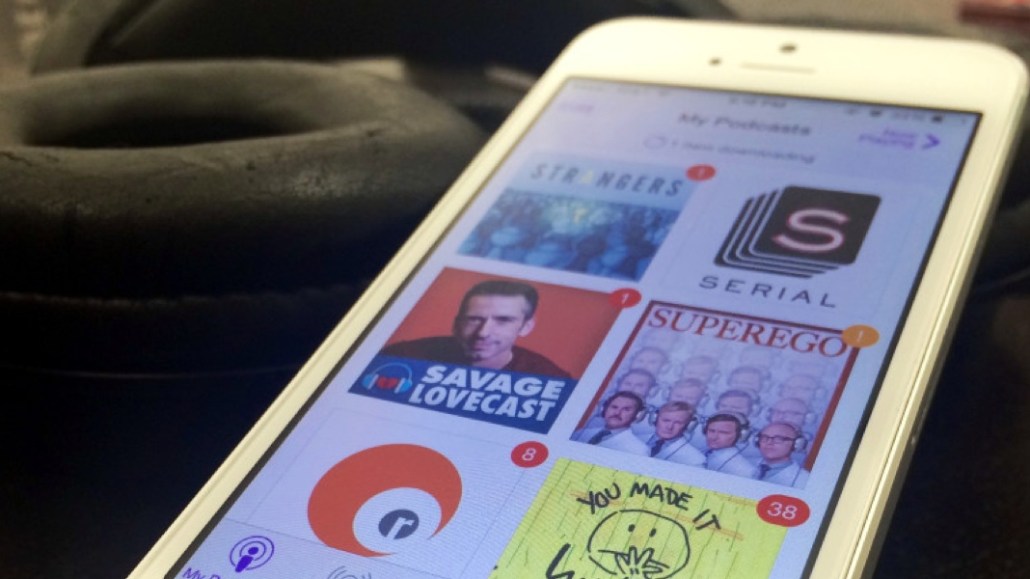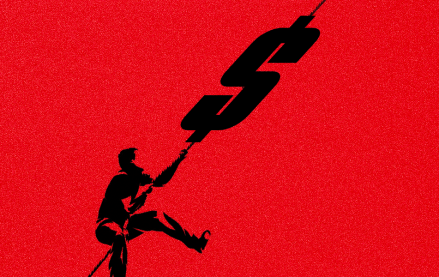Podcasting keeps inching toward measurement standard, but is reluctant to deal with the short-term pain

A lack of measurement standards is keeping brand advertising dollars away from podcasting. But its move toward a measurement standard has been fitful because doing so will cause podcast producers short-term pain.
Now, nearly half a year after two leading organizations released competing measurement standards, the industry is slowly getting its act together. On July 1, Wondery, a top five podcaster that’s responsible for shows including “Dirty John” and “Accused,” will join HowStuffWorks in adopting the Interactive Advertising Bureau’s new standard for podcast measurement. Wondery hopes switching to the IAB standard will encourage its peers to do the same.
Doing so comes at a cost, though. Transitioning to the IAB’s standard has caused a “double-digit percentage” drop in downloads for many of its shows, Wondery said. That hit is slowing the transition that both producers and ad buyers say is necessary to attract more ad dollars.
“It is the right thing to do.” Wondery CEO Hernan Lopez said. “We certainly hope agencies will notice we’re taking the first step.”
The IAB standard creates this short-term pain because it addresses a problem that’s arisen as podcasting has grown into a mobile-dominated medium. If a user began streaming an episode, podcast apps such as Apple’s, which accounts for a majority of podcast consumption, would download the show in chunks, rather than all at once, and in many cases, the shows’ hosting platforms would record those requests as multiple downloads. That and other moves artificially inflated download counts across the industry, particularly for shows with longer episodes or higher bit rates.
There’s little incentive for producers to give up the impressions they can dangle in front of advertisers, but that’s just what the IAB’s new standard would do. The standard only counts downloads from a user over a 24-hour period. The longer window minimizes the likelihood of double-counting downloads, leaving the podcast producer with less to sell. When Midroll, an ad network that sells ads for podcasts including “WTF with Marc Maron” and “The Bill Simmons Podcast,” switched to a system that aggregated all episode downloads a user made during a one-hour window late last year, download numbers for some shows dropped by as much as 40 percent.
“I applaud what Wondery’s doing here,” said Lex Friedman, the chief business development officer of Midroll Media. “And if the rest of the industry gets to 24 hours, we’ll be there.”
Friedman said Midroll has mostly weathered that storm. But in the 24-hour window, Friedman sees the potential for further declines from things like large groups of employees, all using the same IP address, downloading shows in a single day.
“We care about what advertisers want,” Friedman said. “But we don’t want to put ourselves in that position.”
Others are interested in adopting the IAB standard, but at their own pace. Megaphone, a podcast hosting company owned by The Slate Group, which hosts shows for publishers including HowStuffWorks, Bloomberg Media and The Wall Street Journal, has given its publisher partners until the end of the year to switch over to the new methodology.
“I think now that there’s substance to the [IAB] spec, everybody’s moving in that direction, but at their own pace,” said Joel Withrow, Megaphone’s head of product.
Podcasting remains tiny relative to other digital media formats, with about 73 million Americans listening to podcasts monthly in 2018, according to Edison Research. Podcasting is also dominated by direct-response advertisers, which have made up for the format’s lack of analytics and tracking by relying on download codes or unique URLs to track the effectiveness of the ads.
But brand advertisers say they need those tracking capabilities, and they have long maintained that they require a unified standard that’s embraced by big players to move ad dollars that way.
“I think you need two to three more big publishers to say, ‘We’re going to do the same thing,’” said Gregorio Roseto, the audio investment lead at Horizon Media.
More in Media

Walmart rolls out a self-serve, supplier-driven insights connector
The retail giant paired its insights unit Luminate with Walmart Connect to help suppliers optimize for customer consumption, just in time for the holidays, explained the company’s CRO Seth Dallaire.

Research Briefing: BuzzFeed pivots business to AI media and tech as publishers increase use of AI
In this week’s Digiday+ Research Briefing, we examine BuzzFeed’s plans to pivot the business to an AI-driven tech and media company, how marketers’ use of X and ad spending has dropped dramatically, and how agency executives are fed up with Meta’s ad platform bugs and overcharges, as seen in recent data from Digiday+ Research.

Media Briefing: Q1 is done and publishers’ ad revenue is doing ‘fine’
Despite the hope that 2024 would be a turning point for publishers’ advertising businesses, the first quarter of the year proved to be a mixed bag, according to three publishers.








